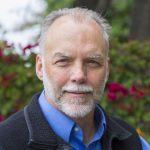Since humankind decided to become like God and ate of the fruit, it has been plagued with dis-ease. A broken relationship, that between God and humankind, was the first example of disease and suffering the world had ever known. A form of suffering that was in the beginning a spiritual break from a perfect relationship with the Creator of the universe, eventually led to mental and physical suffering. Does the church have a calling to heal and make whole those who are suffering around us all on a daily basis? If we believe she is called to such a ministry focus, what should that look like in real life? Will it be to help address the needs of the whole person—mind, body, and spirit? How will this calling be carried out in the midst of the world’s efforts to do the same? And perhaps most importantly, does this have any application to the remaining challenge of so many ethnolinguistic groups, commonly known as ‘people groups’, that still have no witness to the good news of Jesus the Messiah?
Florence Muindi inspires us in The Church and Whole-Person Care: Why the church should have an impact with her own story of how her view of the calling of the church to ministries of health, healing, and wholeness evolved through difficult situations. While she was occupying herself with many ministry activities, her heart was broken by the sight of young shivering homeless children going through trash trying to eke out an existence on the street just blocks from her mission house. After much mental struggle, instead of starting an orphanage with a feeding program to minister to those suffering, she resolved to help the local church understand and embrace her calling to care for the whole person.
Author, teacher, and mental health practitioner, Karen Bomilcar brings a holistic perspective to the role of the church in addressing mental health issues in Mental Health and the Christian Community: Towards interdisciplinary and integral health. Karen appropriately points out the ever-present challenge of a dualistic mindset that continues to plague the church. Humans are embodied souls and need to have their health problems addressed as such. For too long mental health issues have been ignored by the church with a common view that you cannot suffer from mental health issues if you believe in Jesus. To be depressed has been considered by many to represent a lack of faith. Karen helps us see how the church can be a true partner in addressing mental health issues in our fellowships using an interdisciplinary approach.
The world in which ‘traditional medical missions’ is being conducted has been changing rapidly. And we must acknowledge that old paradigms of what constitutes medical missions may no longer apply in most regions of the world. This thought-provoking analysis is expounded in The Changing Face of Healthcare Missions: Opportunities and challenges in the 21st century by Nyalpi Nungarai. A shift is occurring—the incidence of suffering from the well-known infectious diseases is declining while the rate of diseases of affluence is increasing dramatically. The author offers helpful suggestions as to how we can be most effective in our healthcare efforts to our neighbors and concludes by affirming the key role we all can play in solving the complex health problems facing the world today.
In Untold Stories: The intersection of physical and spiritual health among frontier peoples, Jason Lee has shown the usefulness of combining available statistics related to development indices as used by secular development agencies and those from such entities as Joshua Project. He highlights that there is still much that can be learned from assessing where people are suffering the most from a ‘health’ perspective—many among Frontier People Groups (FPGs).
Recognizing the positive effect of the introduction of a Biblical worldview on human wellbeing, he calls the church in our efforts to reach FPGs to look for niches in these contexts, where we can shift to incarnational forms of outreach that emulate Jesus’ model of whole person care. Jason suggests: ‘Existing proximate groups or churches of disciples should become hubs of development and health, not necessarily by hiring health professionals or adding dispensaries, but by modelling Jesus’ paradigm of intertwining spiritual, physical, mental, emotional, and social health into disciples’ daily lives, at a level that local disciples can reproduce and sustain.’
Lausanne Global Analysis is also available in Portuguese, Spanish, French, and Korean. Please send any questions and comments about this issue to analysis@lausanne.org. The next issue will be released in March 2024.
